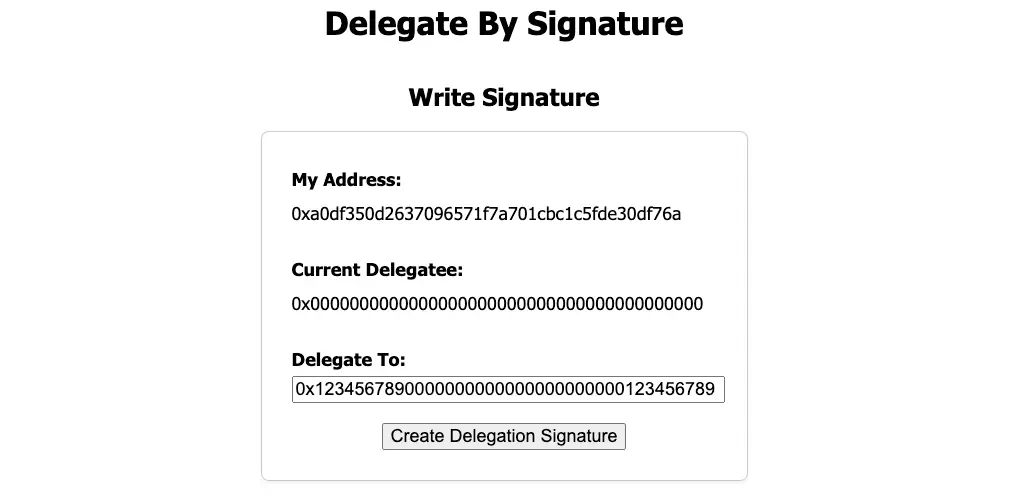Welcome to the Web3 world, where digital finance and applications are shown in a revolutionary way through the fusion of blockchain technology, cryptocurrencies, and a pioneering spirit. Are you overwhelmed by the wealth of terms in the Web3 world that you don’t understand? Are those slangs barriers for you to learn about Web3? Don’t worry! We’re here to explain the obscure terms to guide your learning. Today, we're diving into an exciting development in the world of Web3: [Address Delegation].
Address delegation in Web3 is the process where one blockchain address grants certain rights or permissions to another address to act on its behalf. This mechanism allows users to delegate tasks like voting, managing funds, or executing transactions to other trusted entities without relinquishing control of their assets. Address delegation is essential for decentralized applications (dApps) and decentralized autonomous organizations (DAOs), where distributed control and trust are paramount.
Address delegation involves using smart contracts to encode and enforce delegation rules. These contracts store information about which permissions are delegated and to whom. For example, in Ethereum, delegation can be set up through a specific contract that logs delegation events and permissions, ensuring transparency and security. The delegatee can perform actions like voting or interacting with other contracts on behalf of the delegator, but cannot exceed the permissions granted. 1.Permission Granting: Delegators can grant specific permissions to delegatees, such as the ability to vote in DAO proposals or manage certain assets.
2.Task Automation: Delegation can automate routine tasks by assigning them to bots or secondary addresses, improving efficiency.
3.Role Management: Addresses can delegate roles within dApps or DAOs, enabling better management of responsibilities and access control.
●Voting Delegation: Common in DAOs, where token holders delegate their voting power to others who can vote on governance proposals on their behalf.
●Fund Management: Users can delegate the management of their funds to another address, which can then make transactions within the specified limits.
●Access Delegation: In dApps, access rights to certain functionalities can be delegated to specific addresses to streamline operations.
Importance in Web3 Ecosystem
Address delegation is crucial in the Web3 ecosystem as it enhances decentralization and flexibility. It allows for more efficient governance, streamlined operations, and better resource management within dApps and DAOs. By enabling the delegation of specific tasks, users can participate more effectively in the decentralized economy without needing to be constantly involved in every transaction or decision. User Experience and Innovations
While address delegation provides significant benefits, it also introduces complexity. Innovations like multi-signature wallets and role-based access control help manage these complexities by providing more intuitive and secure delegation mechanisms. These tools ensure that delegation is done safely and transparently, reducing the risk of misuse or errors.
Despite its advantages, address delegation comes with challenges such as ensuring security and preventing misuse. Trust management between the delegator and the delegatee is critical, and mechanisms must be in place to revoke delegation if necessary. Additionally, the technical complexity of setting up and managing delegation contracts can be a barrier for less experienced users.
Address delegation is a fundamental concept in Web3 that enables more dynamic and flexible interactions within decentralized networks. It allows users to efficiently manage their responsibilities and participate in the decentralized economy without compromising security. As Web3 evolves, the usability and security of address delegation will play a pivotal role in its broader adoption, empowering global participation in the decentralized digital economy. Address delegation is not just a technical feature; it is a key enabler of the innovative and inclusive nature of Web3.

